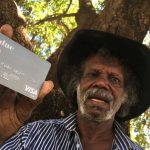Labor Is Expanding and Consolidating Cashless Welfare, Not Ending It as Promised

Slight of hand politicking has fast become Labor’s stock-in-trade. It promised climate reform and delivered a rejigged 2016 fossil fuel industry-friendly Abbott initiative, while on refugees, it provided pledged permanent protection, but only to 19,000 of 31,000 individuals living in the community.
And on the promise of war powers reform, the Albanese government established a parliamentary committee inquiry, and the investigation’s finding that no change was needed was publicly recommended by both the defence and foreign ministers way before its report was released.
Now PM Anthony Albanese currently stands before the nation, shuffling three upside cups, asking us to guess which one holds the election promise of reigning in income management (IM) beneath it.
Yet, the real trick is that it doesn’t exist, rather one cup actually conceals enhanced IM expansion.
Introduced by Howard in 2007, as part of the NT Intervention, IM, also known as welfare quarantining, entails those on social security benefits being required to spend a portion of their payment on “priority goods”, while restrictions are placed on buying things like alcohol and tobacco.
The Albanese government made good on its election promise in September, when it abolished the privatised cashless debit card (CDC) regime, yet, at the same time, it introduced a system of enhanced income management (eIM), which maintains IM principles while using CDC technologies.
And in doing this, Labor didn’t end compulsory government-run IM for around 20,000 almost entirely First Nations people living the NT, and nor did it end welfare quarantining for Indigenous people in the Cape York region, rather it transferred them onto the enhanced system.
And now under a new amendment bill, the Albanese government continues with its political conjuring tricks as it aims to not only broaden the scope of its newly-implemented eIM regime, but it’s also providing that this scheme can be expanded at the minister’s discretion.
Opaque enactment
Social services minister Amanda Rishworth explains in her second reading speech on her newly introduced legislation, that the bill that last September scrapped the cashless debit card regime, further established enhanced income management an alternative.
On being passed, the heavily amended Social Security (Administration) Amendment (Repeal of Cashless Debit Card and Other Measures) Bill 2022 inserted part 3AA into the Social Security (Administration) Act 1999 (Cth), which establishes the eIM framework.
This new regime specifically applied to those previously subjected to the CDC system in the NT, Queensland and eligible volunteers elsewhere.
However, Rishworth’s new Social Security (Administration) Amendment (Income Management Reform) Bill 2023 is set to replace all existing welfare quarantine regimes with eIM.
“This bill will facilitate… transition to enhanced income management for existing income management participants who choose to access the superior banking product and ensure that new entrants into the program are provided with the contemporary technology,” the minister explained.
The spruiked technologies incorporated into the eIM regime are those taken from the cashless debit card system, which will be encompassed in the new SmartCard: a Visa debit card that will be linked to an eIM bank account. SmartCards will be issued by Indue or the Traditional Credit Union.
A path to nationwide expansion
Rishworth further told to the chamber on 9 March that there are “three key reforms” involved in her amendment bill. The first is that eIM will incorporate all aspects of the IM regime, with the SmartCard operating at over a million outlets, while users can tap-and-go, shop online and BPAY.
The second change permits those on IM to shift to eIM, which will mean either retaining the use of the BasicsCard or moving to the “superior” SmartCard. And the last shift is that “new participants” to welfare quarantining will go straight onto the enhanced regime without any alternative.
The new bill will also extend the reach of eIM to include individuals suggested by a child protection officer, parents of children with poor school attendance, those referred by a state or territory authority, vulnerable recipients, long-term welfare recipients, disengaged youth and volunteers.
These additional areas correspond with current reasons to be considered for income management and, under each newly proposed section that relates to each of these cohorts, a clause exists that permits the minister to legislate expansion of each descriptor to further jurisdictions.
Indeed, while the explanatory memorandum sets out that the minister intends to maintain a stipulation that disengaged youth and long-term welfare recipients are on eIM only if they live in the NT, the amendments provide a clause that allows for this to be broadened elsewhere in the country.
“They want the minister to be able to roll it out wherever the hell she likes, and whenever she likes,” Antipoverty Centre spokesperson Kristin O’Connell said in a 9 March statement.
“They are inviting the next Coalition government to force income control on every welfare recipient in the country when they inevitably return to power.”
A racially prejudiced policy
The Howard government foisted welfare quarantining on to remote Aboriginal communities in the NT in 2007, at the same time as it sent in the army to impose the regulations making up the Intervention, which was a policy based on proven media propagated lies about a child abuse crisis.
However, the Coalition also abolished the Community Development Employment Projects, which saw thousands of First Nations people employed in their communities via this scheme that included a low working wage. And instead, they were then all forced onto work-for-the-dole programs.
Howard went on to develop the practical applications of the IM system, which were then streamlined by subsequent Labor Rudd and Gillard governments. And over recent years, Coalition governments developed the CDC regime, on the suggestion of mining magnate Andrew Forrest.
And all of these cashless welfare systems, including the eIM model currently being developed by the Albanese administration, serve to target First Nations communities predominately.
Out of the Morrison playbook
Labor’s 2021 policy platform stated that if elected the party would “not pursue any expansion of the cashless debit card or community wide income management without clear evidence of community benefit and informed community consent”.
However, while many in the constituency had considered this to mean that welfare quarantining, with its deep-seated racially prejudicial application, would, at least incrementally, be wiped out.
The public had not, however, thought that Labor, in making its reformist declarations about the cashless welfare system, would simply go on to combine what it considered the benefits of both the privatised and government-run schemes and legislate to roll out a combined regime.
“Labor lied to the community about its plans for cashless welfare, and the Coalition will support them every step of the way,” O’Connell made clear in her statement. “The ability to expand cashless welfare across the country at the stroke of a pen is as good as a done deal.”







